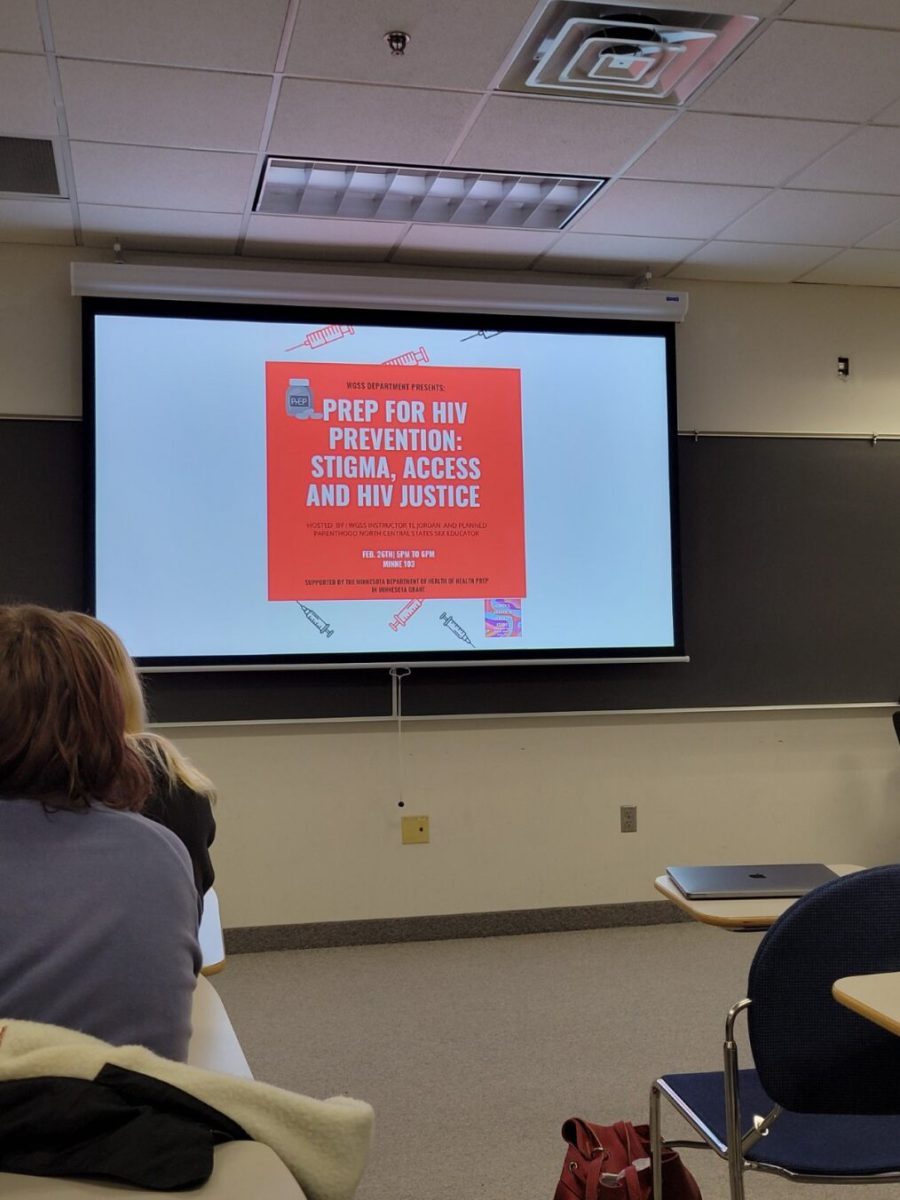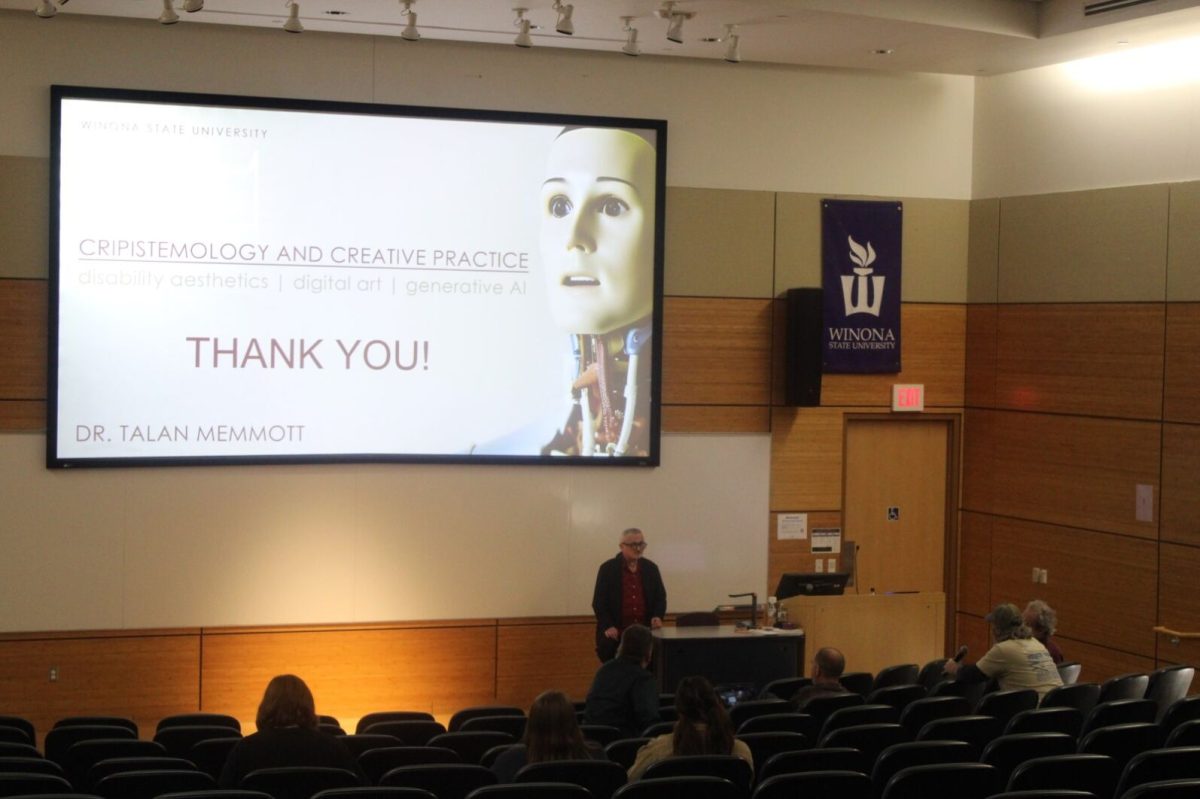Student leaders and faculty discuss Texas abortion law
September 15, 2021
On Sept. 1, a new law became effective in Texas, criminalizing the act of having an abortion after 6 weeks of pregnancy.
The length of pregnancy is calculated from the first day of a person’s last menstrual period, which can lessen the 6-week timeframe dramatically.
Jamie Scherdin, a fourth-year psychology student and president of the Warriors for Life club at Winona State, spoke on how she reacted to Texas’ new abortion law.
“I was ecstatic when I heard the law was going into effect. This is a huge win for the anti-abortion movement and a huge win for women,” Scherdin said.
Andrea Hinitt, a fourth-year student studying psychology and minoring in child advocacy studies and women, gender and sexuality studies who is also the co-president of the WSU Students for Reproductive Justice club, also spoke on the new law.
“The news about Senate Bill 8 being passed into law last week was upsetting. This bill jeopardizes the safety of millions of people who live in the state of Texas who might need to have an abortion after six weeks,” Hinitt said.
A misconception this law has had is that “innocent” people around the pregnant person will also be incarcerated. For example, a taxi driver who may transport them across state lines to have an abortion after six weeks. But this law was created as a civil case. People who aid-and-embed or help the pregnant person would only be liable for damages.
The Texas Legislature provides $10,000 to any person who successfully brings forward any person who is involved in having an abortion in conflict with the new law. Some call this a bounty, saying sex offenders can bring forward their victims and receive little to no consequences.
“These people will be targeting everyday citizens just like themselves. This turns the neighbors and community members of people accessing abortions into dangerous bounty hunters,” Hinitt said.
For those with illnesses that could cause full-term pregnancy to cost them their life, the law does have an exception. For a medical emergency to mark an exception, the emergency would have to be a direct threat to their life and the doctor would have to document it.
If the fetus is in danger or is known to not be able to survive the pregnancy and/or birth, the mother will still have to carry the child to term. This means that even though the child will not survive, the person giving birth will still have to go through labor.
There has been complex discourse around the legitimacy of the new law due to the Supreme Court case Roe v. Wade. Dr. Matthew Bosworth, a professor of political science at Winona State, talked about why this law is legitimate.
“Roe vs. Wade wasn’t the only Supreme Court case that had to do with abortion. Planned Parenthood vs. Casey in 1992 was also used to help the states regulate abortions, as long as the state’s regulation wasn’t an ‘undue burden’ on the woman,” Bosworth said.
The differentiating factor between the new Texas abortion law and the Planned Parenthood vs. Casey case is the challenge of breaking the ruling of Roe v. Wade.
“I was surprised that the court would ignore either this 50-year precedent with Roe vs. Wade or the 30-year-old precedent with Planned Parenthood vs. Casey and just allow the law to go into effect without ]having to go through the whole process,” Bosworth said.
Scherdin explained the goals of the pro-life movement and what she hopes for the future.
“We’re ready to reverse Roe. We will give these women the resources they need to support them with diapers, financial aid, formula, maternity clothes, housing support, etcetera,” Scherdin said.
An issue surrounding the new law that many have discussed is how if someone wanted an abortion, they could potentially move and crossover into other states.
“Moving states is not an option for most people. This law disproportionately affects BIPOC, lower-class people and people living in rural areas. This means more people in Texas will have to give birth who don’t want to/have the means to,” Hinitt said.
Bosworth also explained how other states are looking at Texas and could possibly aim to create
similar laws.
“There are already legislators in other states who are talking about passing similar laws. Minnesota may be looking at this to pass a similar law. Each state has it’s individual constitution. Federal courts will not be intervening,” Bosworth said.









































Jamie Scherdin • Sep 20, 2021 at 9:56 pm
I am very disappointment with this article. I talked for nearly twenty minutes during this interview and two quotes were used from me. I mentioned all the miss conceptions about the law and you failed to mention one in this article. You did mention that people felt they could be incarcerated, but you did not give y response. You also failed to mention that I also have a CAST minor. Given the amount of questions you asked me, this very underwhelming. I hope in the future better articles can be written.